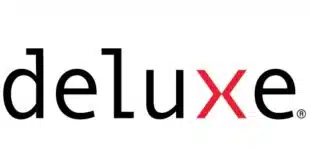Universal Air Travel Plan's alternative-payments initiative added a fifth processor this week with the announcement that Acculynk Inc. will process PIN debit transactions online for airlines that choose to enable the option through UATP's switch. The news not only further's UATP's 3-year-old effort to add alternatives to credit cards for online ticket sales, but it also represents a major step forward for the use of PIN debit cards on the Internet, a payment method that has been left behind as other alternatives to credit and signature debit cards gain volume. The connection to Atlanta-based Acculynk should be live within 30 to 45 days, estimates Tom Cunningham, vice president of business development for Washington, D.C.-based UATP, which provides corporate credit accounts and transaction processing for many of the world's largest airlines. Cunningham says one air carrier in particular, which he won't name, has already said it plans to use the Acculynk service. UATP has also recently signed a similar deal to link to online processor Bill Me Later Inc., and already provides PIN debit access through HomeATM, a Montreal-based processor. Two other alternative-payment providers, PayPal Inc. and Moneta Inc., have also signed processing deals with UATP. PIN debit's appeal to airlines, Cunningham says, lies in both lower transaction costs and fast, guaranteed payment through the electronic funds transfer networks at a time when carriers have seen merchant processors increase holdbacks on airline credit card sales. PIN debit transactions generally clear the same day. “This is a situation where there's a direct transfer from the customer's checking account, and there's no holdback,” he notes. At the same time, Cunningham says recent events like the runup in fuel prices have caused airlines to re-examine costs they can more readily control. “There are limited ways airlines can control their costs, so increasingly distribution costs and form-of-payment costs are becoming highlighted,” he says. Whereas a $500 fare might cost an airline around $10 to accept on a credit card, the same transaction might incur half that cost on a PIN debit card, reflecting EFT network interchange of 0.75% plus 15 cents. The transaction becomes even cheaper?dramatically so?when processed through networks that have interchange caps, which typically are 65 cents. Factors like this make UATP optimistic the PIN debit option through both Acculynk and HomeATM will prove popular. No UATP airline has yet adopted HomeATM's PIN debit service after eight months of availability, but Cunningham says he's not surprised. “That's not unusual,” he says. “It does take time.” He says airlines have expressed interest in HomeATM's system as well as that of Acculynk. “We've had conversations with two to three fairly significant names,” says Nandan Sheth, president of Acculynk. “Airlines are aggressively looking at value-added payment types.” Acculynk's system is based on technology developed by ATM Direct, whose assets Acculynk bought in February for $600,000 after ATM Direct's owner, Pay By Touch Inc., filed for bankruptcy (Digital Transactions News, April 3). Since then, Acculynk has dropped the ATM Direct brand and slightly changed the spelling of its name (it had been Accullink). Acculynk's technology relies on software that allows computer users to use mouse clicks to enter a PIN on a so-called floating PIN pad that appears on their screens. From that point, the processor passes transaction details, including encrypted PINs, on to the EFT networks for authorization and settlement. With HomeATM's system, consumers use an attached peripheral card reader to swipe their cards and enter their PINs (Digital Transactions News, Dec. 18).
Check Also
Mastercard Looks to Support Stablecoins in a Deal With Wallet Provider MoonPay
The big card networks have worked for several years to exploit the growing business of …





